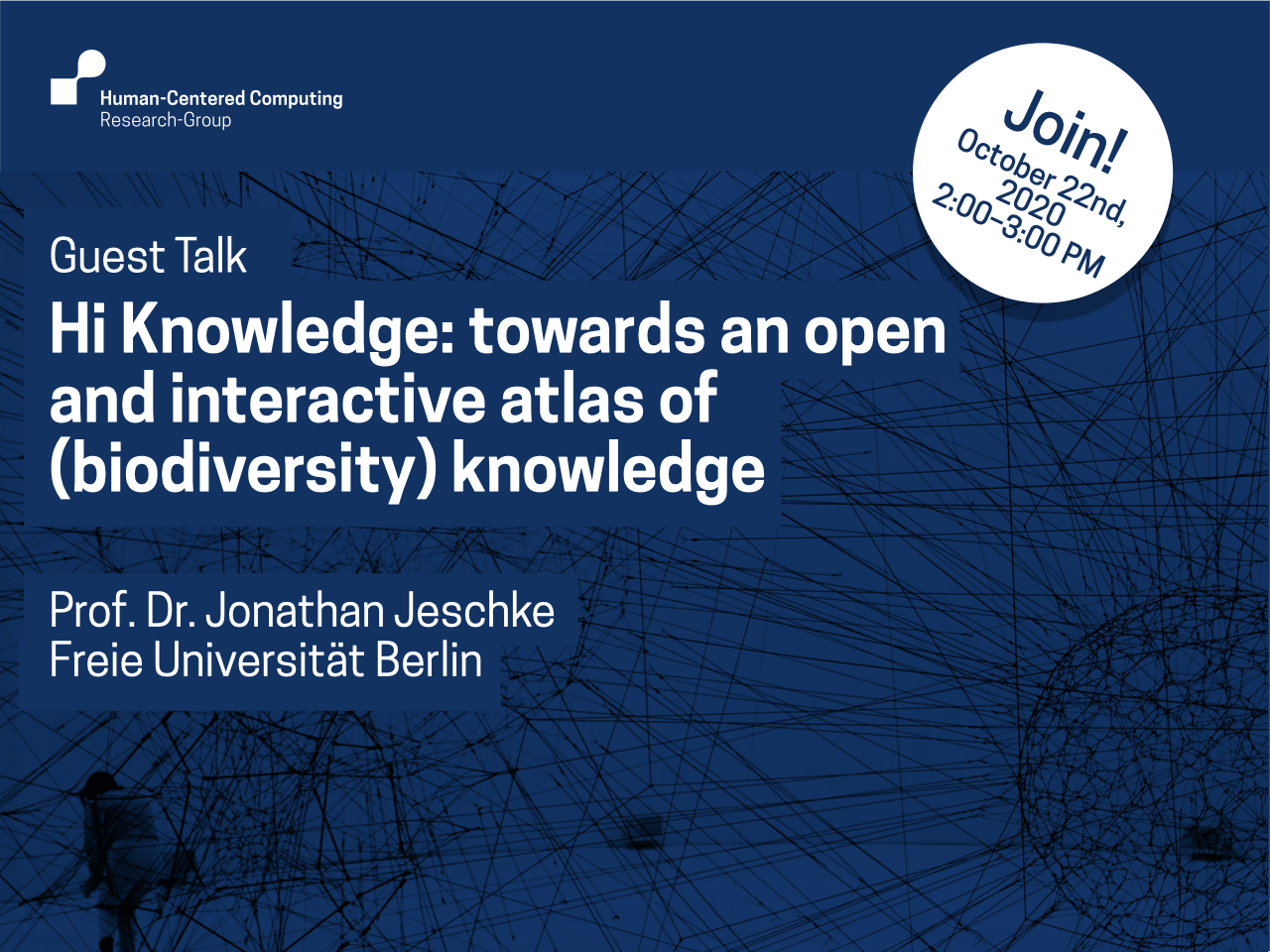Guest Talk: "Hi Knowledge: towards an open and interactive atlas of (biodiversity) knowledge" by Prof. Dr. Jeschke (October 22, 2020)
News from Oct 08, 2020

Image Credit: Alina Grubnyak on Unsplash
October 22nd, 2 pm - 3 pm
Professor Dr. Jonathan Jeschke will give the talk: "Hi Knowledge: towards an open and interactive atlas of (biodiversity) knowledge" at the HCC Lab.
Jonathan Jeschke was born in Munich where he also studied Biology at Ludwig-Maximilians-Universität (LMU) and completed his dissertation in 2002 at LMU’s Chair of Ecology. Afterwards, he joined LMU’s Biology Education group and then worked from 2003 to 2005 as a postdoc at the Cary Institute of Ecosystem Studies in Millbrook, NY, USA, where he started to work on biological invasions. From 2005 to 2006, he moved to the University of Helsinki, Finland, to work on bird behavior and life histories of vertebrates. In 2007, he moved back to Munich where he continued his research on biological invasions, first at LMU and then at the Technical University. He completed his habilitation in 2011 and then moved to Berlin in 2014, where he is now living with his family and leads the research group Ecological Novelty at the Leibniz-Institute of Freshwater Ecology and Inland Fisheries (IGB) and Freie Universität Berlin.
Abstract
Invasion biology is a thriving discipline of biodiversity science that focuses on human-mediated translocations of species across the globe and the establishment, spread and impacts of these species. Many research groups worldwide are active in this field and publish their findings in increasing numbers of papers. Similarly, key concepts have been postulated that allow for a better understanding of biological invasions. The flipside of this success story is that it has become increasingly hard to get and keep an overview of the field. Similar observations can be made for other disciplines of biodiversity science and beyond. To tackle this challenge, we argue that new tools for synthesis and navigation in science are needed – tools that provide an overview of research fields, “connect the dots” and remain up-to-date. We are envisioning an open and interactive atlas of biodiversity knowledge – an atlas that includes maps providing an overview of research fields, for example in the form of networks connecting major hypotheses or research questions. Importantly, these maps are interactive and zoomable, so that users can quickly find specific hypotheses related to a major, overarching hypothesis or research question, and studies and datasets addressing them. This is possible due to the hierarchy-of-hypotheses (HoH) approach. Finally, information is kept up-to-date thanks to a machine-learning algorithm combined with a community-driven wiki approach. If such an atlas can be realized and proves useful for biodiversity science, it may grow and cover other disciplines as well, so that it eventually becomes an open and interactive atlas of knowledge.
Date: October 22nd, 2020, 2 pmLocation: If you want to join the presentation, please contact Dr.-Ing. Christoph Kinkeldey.
